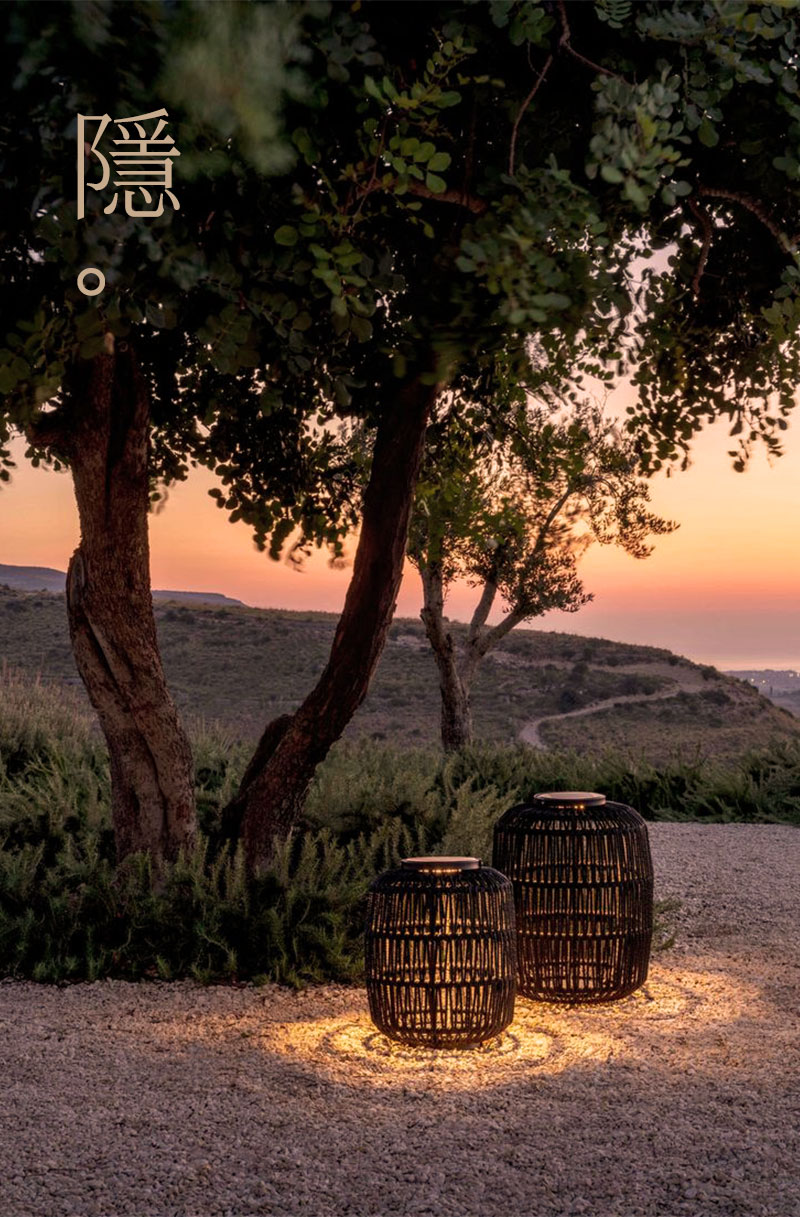杭州慢珊瑚设计 神仙居风景区 10000year 第三百二十七篇 _20250704
2025-07-04 15:39
慢珊瑚设计专注文旅度假与非标商业创新融合,以前瞻运营思维重塑空间体验。
我们以「珊瑚式生长」内核,用微小个体的凝聚力和可持续创造力,在商业生态中构建兼具松弛感与生命力的独特场域。
Constructing an Unfinished Space Through Light-Touch Intervention
神仙居作为充满 “仙人居住之地”神秘色彩的国家5A级旅游风景区,因其绵延的峭壁、奇峰云海与深厚的佛道文化而闻名。天然景观与人文信仰交织,这里是东方地貌神性与自然野性的共生之地。慢珊瑚团队此次受邀,将原本作为配套用房的场地转化为景区内沉浸式体验的关键节点。
As a national 5A-level tourist attraction imbued with the mystique of a “dwelling place for immortals,” Shenxianju is renowned for its dramatic cliffs, sea of clouds, and deep-rooted Buddhist and Taoist culture. Here, natural landscapes and spiritual beliefs intertwine, forming a place where the sacred topography of the East coexists with untamed nature. Invited to intervene, the Slowcoral team reimagined a previously unfinished support facility into a key node of immersive experience within the scenic area.
Building and the Lotus Platform
Building Fading into Nature
作为自神仙居风景区入口通往标志性景观莲花台的必经节点,10000years 咖啡占据着游览动线的关键位置。它既是游客长途跋涉后的休憩驿站,也是串联自然景观与人文体验的重要枢纽,在山水画卷中悄然勾勒出功能与美学兼具的过渡场域。
As a key node along the route from the scenic entrance to the iconic Lotus Platform, 10000years Café at Shenxianju occupies a pivotal position in the visitor’s journey. Serving both as a resting stop after a long trek and as a vital link between natural landscapes and cultural experiences, it quietly outlines a transitional space where function meets aesthetics—nestled within a scroll of mountains and waters.
Building within the Shenxianju Mountains
Shenxianju Lotus Platform
Reactivating Space Through Micro-Intervention
设计介入之初,原有建筑为一处半完工状态的景区配套用房,空间形态与功能划分尚不明确。景区希望设计介入后,这一空间能够被充分激活,承载更多功能与内容,实现业态的复苏与再生。对此,我们并未选择重建或彻底翻新,而是以更为克制、灵活的微改造策略,保留原有结构,释放其潜在的空间价值,并赋予更加复合、多元的使用可能。
At the outset of the design intervention, the existing structure was a partially completed support facility within the scenic area, with undefined spatial form and function. The site management hoped that, through thoughtful design, the space could be fully activated—accommodating more diverse functions and facilitating the revival of its programmatic potential. In response, we chose not to pursue complete reconstruction or overhaul. Instead, we adopted a more restrained and flexible strategy of micro-renovation, preserving the original structure while unlocking its latent spatial value and enabling more complex and multifaceted uses.
Before Renovation of the Project
Distant View of the Building Exterior
改造不仅聚焦于物理空间本身,也包括品牌视觉与导视系统的整体策划与设计,在有限的资源下实现了一体化的空间更新与体验整合。
This transformation extended beyond the physical space to include the full curation and design of the brand identity and wayfinding system, resulting in an integrated spatial renewal and a cohesive user experience within limited resources.
Distant View of the Building Exterior
在整体策略上,我们以低成本、轻量级的设计手法回应现有结构,以适度更新的材料语言,嵌入新的空间功能与感知体验。设计避免了形式性的过度表达,而是以新的材料、精准的尺度和可持续的逻辑,推动场地从未完成的构筑物转化为一个真正开放、包容、多功能的共享会客厅,实现了建筑从“未被定义”到“被激活”的设计价值转换。
In our overall strategy, we adopted a low-cost, lightweight design approach to respond to the existing structure. Through a modestly updated material language, we embedded new spatial functions and sensory experiences. The design avoids excessive formal expression, instead relying on new materials, precise spatial scales, and a sustainable logic to transform the site from an unfinished structure into a truly open, inclusive, and multifunctional shared living room. This marks a shift in architectural value—from “undefined” to “activated.”
Building, Boardwalk, and Lotus Platform
Distant View of the Building Interior
The Implicit Expression of Local Culture
空间中,顶面以“蝌蚪纹”作为局部装饰图腾,用以遮挡必要的设备设施。图案源自神仙居地域文化中关于自然生命起源与山水灵性的象征语汇,以极其克制的方式融入场域,形成文化肌理层面的认知共鸣。这种处理方式避免了符号的表层消费,也不以视觉装饰为目的,而是让空间在使用中自然呈现其文化背景,强化对“山中之所”的精神识别。
In the first-floor space, the ceiling incorporates a “tadpole pattern” as a subtle decorative motif, serving to conceal necessary mechanical systems. The pattern draws from regional cultural symbols of Shenxianju, referencing themes of natural origins and the spiritual essence of mountains and waters. It is integrated into the site with utmost restraint, creating a layer of cultural texture that resonates cognitively with visitors. This approach avoids the superficial consumption of symbols and resists mere decorative intent. Instead, it allows the cultural background to emerge organically through use, reinforcing the spatial identity of a “place within the mountains.”
Mountain Mist Surrounding the Building
Softening Space Between Mountain Forms
设计保留了原建筑中的人字梁,并以两个弧形顶棚覆盖其上,完成了空间的视觉柔化与设备隐藏的双重目的。顶棚内部不做任何多余修饰,以纯净的弧线回应山体曲线,强调结构与自然之间的对应关系。
The design retains the original building’s gabled beam and overlays it with two curved canopies. This achieves a dual purpose: visually softening the space while concealing mechanical systems. The interior of the canopy is left unadorned, allowing the pure arc of its form to echo the surrounding mountain contours, emphasizing the dialogue between structure and nature.
Maximizing the Mountain View Indoors
这种最简洁的方式,使空间获得了极高的静谧感和开放性,让人在其中不被设计本身干扰,专注于景观、光线与人的关系。弧形顶面并非形式表达,而是服务于结构整合与空间情绪的有效介入,构成了空间“去设计化”理念的核心体现。
This minimal intervention brings a heightened sense of stillness and openness to the space, allowing users to focus not on the design itself, but on the interplay between landscape, light, and human presence. The curved ceiling is not a gesture of formalism, but an effective integration of structure and spatial atmosphere—serving as a core expression of the project’s “anti-design” philosophy.
Brick and Curtain: Reconfiguring Spatial Atmosphere
设计延续了原建筑所遗留的红砖墙体与地面肌理,作为场地时间性的视觉延续。在此基础上,运用了耐候钢板作为空间的结构补充与气质对话——一种当代工业感与在地砖石语言之间的张力被有意保留。
The design preserves the existing red brick walls and ground textures of the original structure, serving as a visual continuation of the site’s temporality. Building on this foundation, weathering steel is introduced to supplement the spatial structure and engage in a dialogue of material character—a deliberate tension is maintained between contemporary industrial sensibility and the local language of brick and stone.
Theatrical Curatorial” Space
为了弱化原有材料的硬度,设计加入了轻量的布幕系统,呈现“舞美策展”式的空间构想。布幕不仅是装饰,更是作为一种结构性的感知边界,柔化声场与光线,使得空间的体验更具沉浸感与包容性。
To soften the inherent hardness of the original materials, the design incorporates a lightweight curtain system, introducing a scenographic and curatorial approach to spatial composition. The curtains are not merely decorative—they serve as structural boundaries of perception, softening acoustics and light to create a more immersive and inclusive spatial experience.
Theatrical Curatorial” Space
Drawing Water In, Opening to Nature
设计进一步引入自然要素——我们在空间界面上延展水体,通过开窗与水平延伸,将室外的自然肌理引入室内,使空间边界变得模糊。水面与天光共同作用,形成多维度的感知回响,也激活了建筑与自然的对话关系。
The design further introduces elements of nature. By extending the water feature along the spatial interface and opening windows to create horizontal visual continuity, the texture of the outdoor landscape is gently drawn into the interior, blurring the boundary between inside and out.
Maximizing the Mountain View Indoors
Water Ingress into the Interior
空间在“引水”“引光”“引绿”的过程中,实现了内部气候的自然调节,同时形成一种“非封闭”的状态感,使人在此不再被围合,而是得以与周围的山体和场地共处。
The interplay of water and natural light generates a multi-sensory resonance, activating a dialogue between architecture and nature. Through the introduction of water, light, and greenery, the space achieves a natural regulation of its internal climate while cultivating a sense of openness. Here, one is no longer enclosed, but coexists with the surrounding mountains and landscape.
Water Ingress into the Interior
Theatrical Curatorial” Space
An Emerging Spatial Theater
空间的布局策略完全基于“策展”逻辑进行组织。家具采用可移动的组团形式,结合布幕、光影壁炉与顶面圆形镜面的反射装置,不仅营造出如舞台般的灵活场景,也通过镜面引导视线上移,使空间感得以延展,并与自然光线形成柔性互动。
The spatial layout is entirely organized based on a curatorial logic. Furniture is arranged in flexible, movable clusters, complemented by curtains, a light-and-shadow fireplace, and a circular mirrored ceiling installation. Together, they create a stage-like, adaptable setting while the mirror guides the viewer’s gaze upward, extending the sense of space and fostering a soft, dynamic interaction with natural light.
Theatrical Curatorial” Space
不同的使用者可根据场景需要,自由组合形成休闲、沙龙、分享或临时展演等多元形态,使空间成为一种不断“生成”的状态。设计弱化了功能的边界感,强调空间作为容器的开放属性,让人而非设计成为主角。
Users can freely configure the space based on different needs—ranging from salons and workshops to talks and temporary performances—allowing the space to remain in a constantly “emergent” state. The design intentionally softens functional boundaries, emphasizing the openness of space as a container, where people—not design—take center stage.
Theatrical Curatorial” Space
空间宛如在山水中被激活的舞美剧场,通过最轻的设计手法实现人与场域、自然与文化的持续对话。
The space resembles a stage set reawakened within the landscape—where the lightest design gestures enable an ongoing dialogue between people and place, nature and culture.
Theatrical Curatorial” Space
Spatial Symbiosis with Natural Permeation
通过“保留—转译—激活”的策略,设计以轻量的改动完成空间语义的重塑。利用原有结构语言作为基底,以最简单的材料、可变机制与自然元素的介入,建立起一个包容、多义、可被使用者不断定义的空间场域。
Through a strategy of “Preserve–Translate–Activate,” the design reshapes the spatial narrative with minimal intervention. Using the original structural language as a foundation, it introduces simple materials, adaptable systems, and natural elements to construct an inclusive and open-ended environment—one that invites continuous reinterpretation by its users.
Distant View of the Building Interior
空间不再是封闭的容器,而是一个不断生成、持续回应环境的在地剧场。人、物、自然在此间自由流动,边界被柔化,感知得以延展,神仙居的山水气息也在其中缓慢流动、生长。
The space is no longer a closed container, but an ever-evolving local theater that responds to its surroundings. Here, people, objects, and nature flow freely; boundaries are softened, perception is extended, and the spirit of Shenxianju’s landscape slowly flows and grows within.
Distant View of the Building Interior
10000years Café, Shenxianju Scenic Area
Project location: Shenxianju Scenic Area, Taizhou, Zhejiang Province, China
Project type: Scenic Area Commercial
Design: Slow Coral Design
Project photography: Ma Yigao
慢珊瑚设计专注文旅度假与非标商业创新融合,以前瞻运营思维重塑空间体验。
我们以「珊瑚式生长」内核,用微小个体的凝聚力和可持续创造力,在商业生态中构建兼具松弛感与生命力的独特场域。
灵魂、心灵、文学,都在求知,求真,求实,而设计思想的出路是在知识中凝聚成长。设计共壹体应运而生,长于文化的土壤,乘风破浪,一路上探索好的内容,报道好的内容,创作好的内容,让好的内容成为自身进阶最舒适的滋养。欢迎大家关注我们!
 举报
举报
别默默的看了,快登录帮我评论一下吧!:)
注册
登录
更多评论
相关文章
-

描边风设计中,最容易犯的8种问题分析
2018年走过了四分之一,LOGO设计趋势也清晰了LOGO设计
-

描边风设计中,最容易犯的8种问题分析
2018年走过了四分之一,LOGO设计趋势也清晰了LOGO设计
-

描边风设计中,最容易犯的8种问题分析
2018年走过了四分之一,LOGO设计趋势也清晰了LOGO设计
































































































